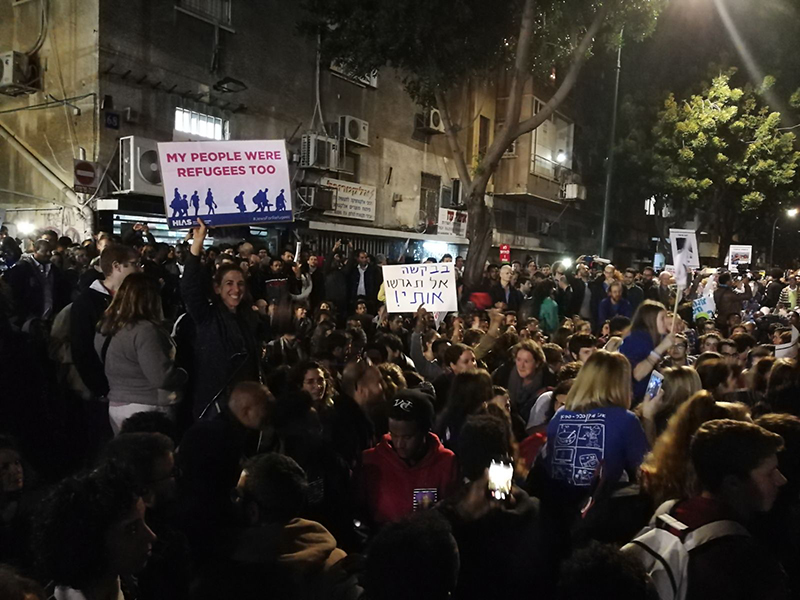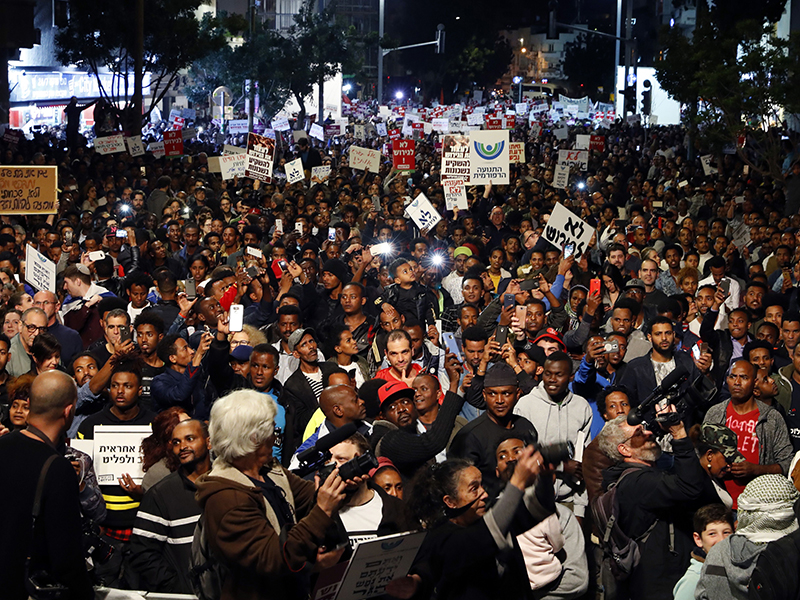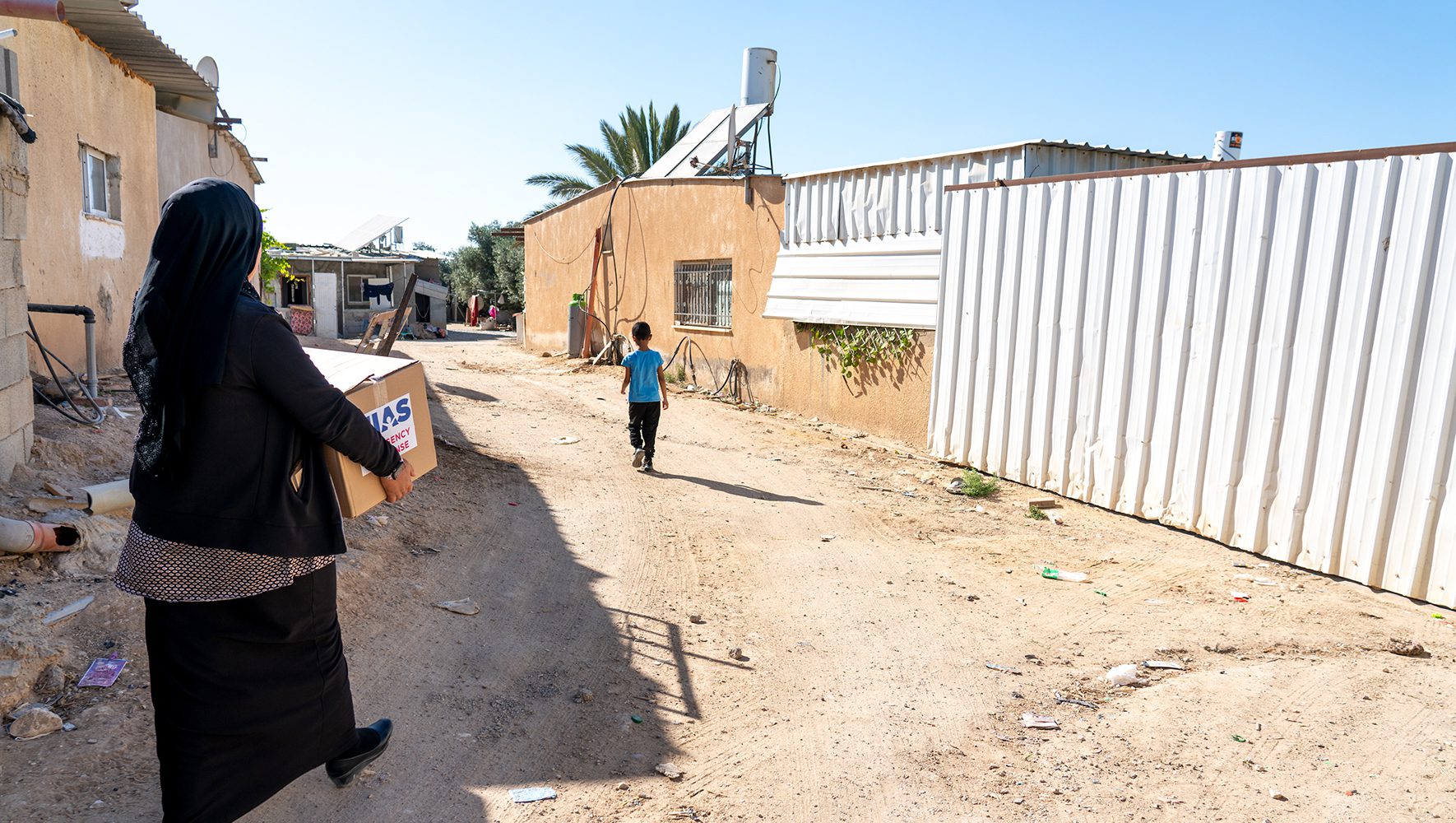Opposition to Israel’s Deportation Plans Gathers Strength
By Gabe Cahn, HIAS.org
Feb 26, 2018
“I ask myself: How the hell will I survive the militias? The human traffickers? The desert? How will I find the strength to survive? You are giving us hope. Because of you here tonight I have faith in the Jewish heart,” Tugud Omer Adam, an asylum seeker from Sudan, told the over 20,000 protesters gathered in South Tel Aviv on Saturday, February 24.
The massive protest in Tel Aviv was part of an ongoing campaign against the Israeli government’s plans to detain or deport tens of thousands of African asylum seekers living in Israel.
The diverse coalition of Israeli and North American groups calling for more humane treatment of asylum seekers is gathering momentum at a critical juncture, with the first wave of deportations scheduled to begin in April.
Last week, seven Eritreans were reportedly jailed after refusing to adhere to the Israeli government’s policy of self-deportation. In response, 750 asylum seekers at the Holot detention center began a hunger strike, and tens of thousands of Israelis took to the streets.
While in Israel for a visit, HIAS President and CEO Mark Hetfield told the Israeli newspaper Haaretz that he felt encouraged the narrative was finally beginning to shift back in favor of the asylum seekers.
“Israelis are beginning to realize these are people with asylum claims, and they should be given a fair asylum hearing,” he said.
“If the government is unable to set up a system that is fair, it should give these people social and economic rights until it is safe for them to go back home. We’re not talking about a lot of people anymore.”
“In Yiddish, it’s called being a mensch,” said Elyakim Rubinstein, a former Israeli attorney general and Supreme Court judge, in a recent interview.
“It is hard for me to understand how only 12 asylum seekers have received recognition as refugees, such a tiny percentage compared to what has been reported [from] other countries,” Rubinstein added.
“The State of Israel was established as a refuge for persecuted Jews, and our traditions command us to be cautious regarding removal of foreigners, even if there is no choice in many cases.”
HIAS, along with partners at the New Israel Fund, T’ruah, and Right Now, organized a call-in day last week in coordination with the #LetUsHelp Campaign, urging North Americans to call their local Israeli consulates and ask them to stop the deportation plans.
In his interview with Haaretz, Hetfield spoke about the relationship between Israel’s policies and attitudes back home in the United States.
“In the eyes of the American-Jewish community – particularly the younger generation – this is very upsetting and it’s just going to cause further alienation from Israel,” he warned.
Hetfield also noted that Trump Administration's policies may be playing a role.
“The United States often sets examples for how refugees and asylum seekers should be treated, and that’s what’s happening now. We either set a good example or a bad example – and right now we’re setting a very bad example.”
Click here to get involved in the #LetUsHelp Campaign.





